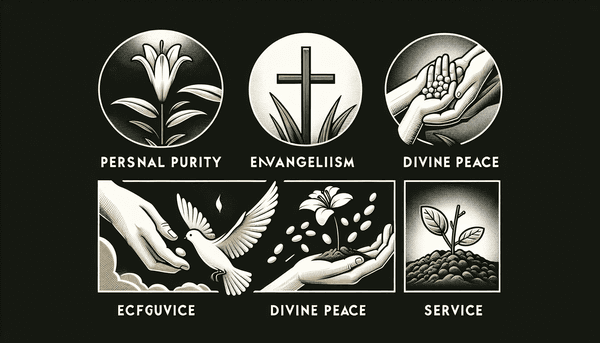Easter Traditions and Gift-Giving
Historically, Easter has been associated with themes of rebirth and renewal, aligning with the arrival of spring. This connection is reflected in the symbols of eggs and bunnies, which are representative of new life and fertility. In modern celebrations, these symbols have translated into the tradition of giving Easter gifts, such as chocolate, candy, decorated eggs, and Easter baskets filled with toys for children. These gifts serve as an expression of love and care, and are a means for sharing in the joy of the Resurrection of Jesus. They also encourage the spirit of giving, which aligns with the religious context of the holiday, as highlighted in the Bible, 'It is more blessed to give than to receive' (Acts 20:35).
Blasphemy and Forgiveness in Christianity
In Christian doctrine, blasphemy is understood as speaking or acting in a manner that shows disrespect or irreverence towards God, Jesus Christ, the Holy Spirit, or sacred religious beliefs. The concept of blasphemy varies across Christian denominations, but it is generally considered a serious sin. One particular reference in the Bible that has sparked theological debate is found in Matthew 12:31-32, where Jesus speaks of the unforgivable sin of blasphemy against the Holy Spirit. This has been interpreted to mean a persistent and deliberate rejection of the work of the Holy Spirit. However, for other forms of blasphemy, Christianity offers a path to forgiveness through true repentance and seeking forgiveness through prayer and confession, as 'If we confess our sins, he is faithful and just and will forgive us our sins and purify us from all unrighteousness' (1 John 1:9).
Conclusion
This exploration of Easter traditions and the understanding of blasphemy and forgiveness within Christianity highlights the multifaceted nature of the holiday. From the joy of giving and receiving gifts that symbolize the Resurrection to the profound spiritual journey towards seeking forgiveness for one's transgressions, Easter encapsulates both celebration and contemplation. As we reflect on these themes, let us be encouraged by the depth of mercy and grace available within the Christian faith, affirming the hope that Easter represents for believers around the world. For more insight on the application of these principles, consider exploring how Biblical teachings influence our modern understanding of relationships, morality, and humility.






